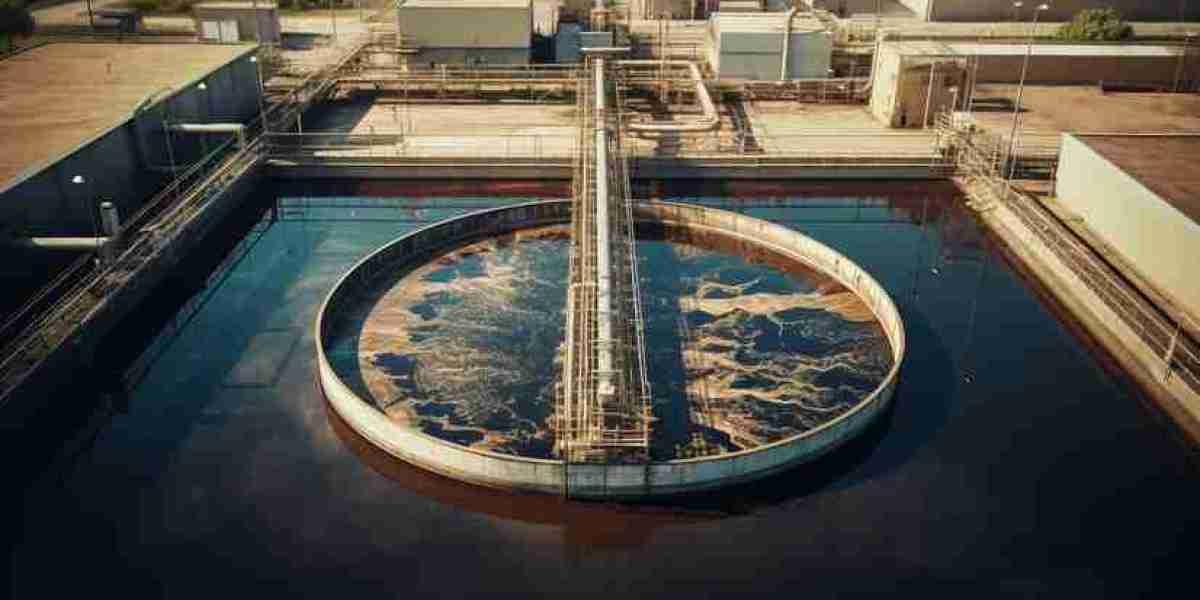Domestic sewage treatment plants will highly impact the quality of water for various purposes. We didn't consider it as important to treat the domestic wastewater but trust us, it is crucial to have a domestic sewage treatment system. Domestic wastewater is treated using innovative methods to remove dangerous chemicals and pollutants before release. It also reduces water pollution and health concerns by doing so. With freshwater depletion and pollution issues, domestic sewage treatment plant offer a sustainable wastewater management solution.
These systems cleanse sewage using physical, chemical, and biological processes to create clean, safe water for reuse or release into rivers and streams. These treatment plants use cutting-edge technology to maximise efficiency and reduce environmental impact. They will remove organic and inorganic materials and lower nutrient levels that cause water eutrophication and destroy aquatic habitats. Domestic sewage treatment plants improve water quality and the environment for everyone. Investing in these systems can make our communities cleaner, safer, and more sustainable.
The Significance of Clean Water
The economy, the ecology, and our health all depend on the quality of the water. Bathing, cooking, and drinking all require clean water. It also promotes industry, recreation, and agriculture. Serious health problems, such as infections and illnesses, can result from poor water quality. Consequently, everyone needs to preserve high water quality.
Typical Water Pollution Sources
There are numerous sources of water pollution. By being aware of these sources, we can avoid pollution. The following are some typical causes of water pollution:
- Industrial Discharges: Dangerous chemicals are frequently discharged into water bodies by factories. Solvents, heavy metals, and other hazardous materials are examples of them.
- Agricultural Runoff: During rainstorms, fertilizers, pesticides, and animal waste may find their way into rivers and lakes. Water quality can be lowered and aquatic life harmed by this runoff.
- Urban Runoff: Rainwater in urban areas can carry chemicals, garbage, and oil from buildings and roadways. This contaminated water enters neighbouring rivers and streams.
- Wastewater: Pollution can result from untreated or inadequately treated sewage introducing nutrients and pathogens into aquatic bodies.
- Landfills: If landfill leachate is not adequately handled, it can damage neighbouring streams and groundwater.
Protecting our water supplies begins with understanding these sources.
Recognizing the Effects of Domestic Sewage on Water Quality
Domestic wastewater is referred to as domestic sewage. Water from sinks, showers, washing machines, and toilets is included. Pathogens, chemicals, nutrients, and organic debris are all present in this effluent. The quality of water can be significantly impacted by improperly treated residential sewage.
Untreated domestic sewage can lead to several issues when it enters aquatic bodies:
- Eutrophication: Algal blooms can result from sewage's excess nutrients. Fish and other aquatic life are harmed by these blooms because they reduce the amount of oxygen in the water.
- Disease Transmission: Dangerous bacteria and viruses may be present in untreated sewage. These viruses pose a concern to public health because they can cause waterborne illnesses.
- Problems with Odor and Aesthetics: Sewage may make water bodies smell bad and look ugly, which reduces their appeal for recreational usage.
- Ecosystem Damage: Aquatic ecosystems are impacted by quality degradation, which results in a decline in biodiversity.
Effective domestic sewage treatment plants are crucial to avoiding these problems.
The Operation of a domestic Sewage Treatment system
The purpose of a domestic sewage treatment plant is to clean domestic wastewater before it is discharged into the environment. This system purges impurities and enhances water quality through a variety of methods. This is how they operate:
- Preliminary Treatment: Large particles and debris are eliminated from the sewage during the preliminary treatment phase. Grit chambers and screens are used for this.
- Primary Treatment: Sedimentation tanks are used to let the sewage settle. Lighter materials float to the top and are skimmed off, while heavier solids sink to the bottom and produce sludge.
- Secondary Treatment: Biological mechanisms are involved in this phase. To break down the organic stuff in the wastewater, microorganisms are added. In this step, aeration tanks are frequently utilized.
- Tertiary Treatment: The treated water is further refined in this last phase. To make sure the water satisfies quality standards, further filtering, disinfection, and nutrient removal may be required.
- Disposal or Reuse: Following treatment, the clean water may be discharged into lakes or rivers or used again for industrial and agricultural uses.
Domestic sewage treatment plants successfully lower pollutants and preserve water quality by doing these actions.
Advantages of domestic Sewage Treatment system
Purchasing a domestic sewage treatment plant has various advantages:
- Better Water Quality: Treatment systems help to keep the water in surrounding bodies of water pure by drastically lowering contaminants in wastewater.
- Protection of Public Health: By treating sewage, these systems reduce the possibility of waterborne illnesses, safeguarding the health of the local population.
- Conservation of the Environment: Reusing wastewater that has been properly treated lowers the demand for freshwater resources and protects ecosystems.
- Regulatory Compliance: By assisting communities in adhering to environmental standards, domestic sewage treatment plants help them stay out of trouble with the law and avoid fines.
- Economic Benefits: By encouraging travel, leisure, and farming, clean water helps local economies. Additionally, it lowers the expenses of environmental remediation and medical care.
- Sustainable Practices: To contribute to a more sustainable future, many treatment systems increasingly use resource recovery and energy-efficient technologies.
To sum up, domestic sewage treatment plants are essential to preserving water quality and safeguarding public health. These plants aid in pollution prevention and promote sustainable water management by efficiently processing wastewater. As a supplier of wastewater treatment systems, we think it's critical to make these investments to provide everyone with safer, cleaner water. We have various treatment systems to offer sustainability such as mobile water purification system or industrial effluent treatment systems.
Do connect with us for more such wastewater treatment requirements.







